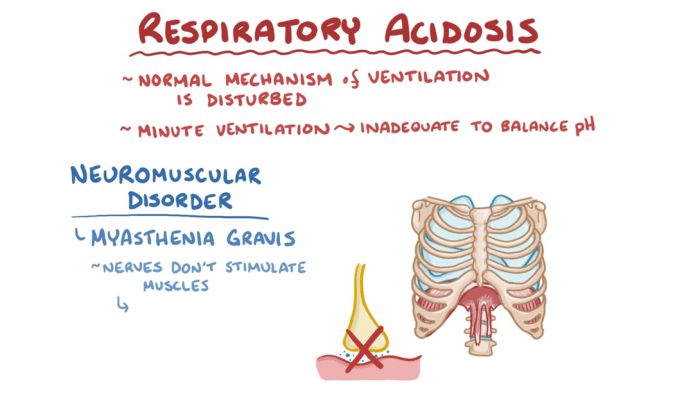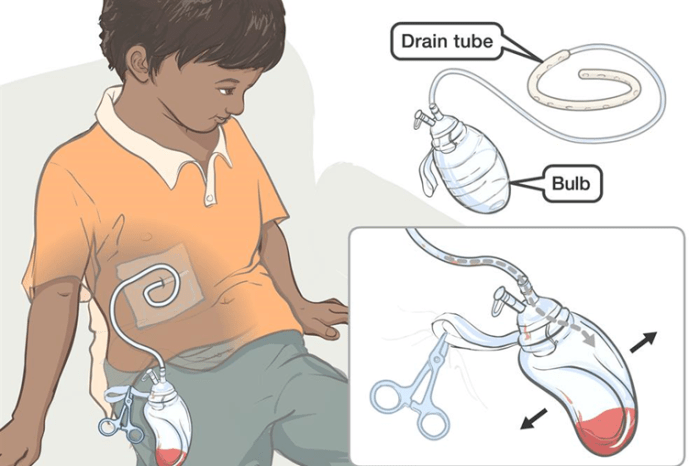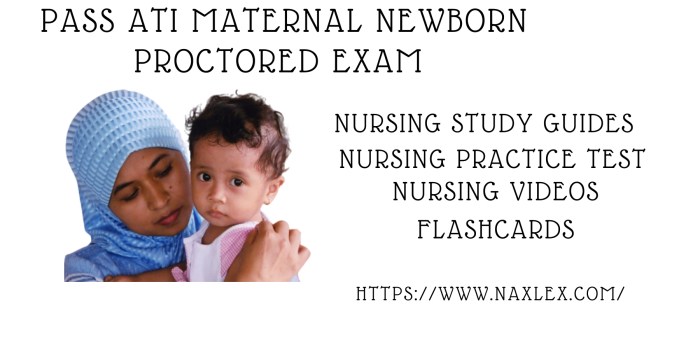Pn adult medical surgical 2020 – Embark on an in-depth exploration of PN Adult Medical-Surgical 2020, a comprehensive guide designed to empower nurses with the knowledge and skills to provide exceptional care to adult patients. Delve into the intricacies of this specialized field, uncovering the diverse responsibilities, common conditions treated, and innovative technologies employed in this dynamic nursing practice.
Throughout this guide, you’ll gain valuable insights into the essential components of PN Adult Medical-Surgical 2020, equipping you to deliver compassionate and evidence-based care that improves patient outcomes.
Introduction
This comprehensive guide provides an in-depth exploration of the Adult Medical-Surgical Nursing practice, encompassing a wide range of topics relevant to healthcare professionals. The content is structured to enhance understanding and provide practical guidance for nurses caring for adult patients in medical-surgical settings.
Background
Adult Medical-Surgical Nursing involves the care of patients with a diverse range of acute and chronic conditions, requiring specialized knowledge and skills in managing complex medical and surgical interventions. This guide serves as a valuable resource for nurses seeking to expand their expertise in this dynamic field.
Definition of Adult Medical-Surgical Nursing

Adult medical-surgical nursing is a specialized field of nursing that focuses on the care of adult patients with a wide range of medical and surgical conditions. These conditions can include acute illnesses, chronic diseases, and injuries.
Adult medical-surgical nurses provide a variety of services to their patients, including:
- Assessing patients’ health needs
- Developing and implementing care plans
- Administering medications
- Providing wound care
- Monitoring patients’ vital signs
- Educating patients about their health conditions
Role and Responsibilities of an Adult Medical-Surgical Nurse
Adult medical-surgical nurses play a vital role in the healthcare team. They are responsible for providing comprehensive care to their patients, from admission to discharge. This includes:
- Assessing patients’ health needs
- Developing and implementing care plans
- Administering medications
- Providing wound care
- Monitoring patients’ vital signs
- Educating patients about their health conditions
- Collaborating with other members of the healthcare team
- Advocating for their patients
Settings Where Adult Medical-Surgical Nurses Work
Adult medical-surgical nurses work in a variety of settings, including:
- Hospitals
- Clinics
- Long-term care facilities
- Home health agencies
Common Conditions Treated by Adult Medical-Surgical Nurses

Adult medical-surgical nurses manage a wide range of medical and surgical conditions. These conditions can be acute, chronic, or a combination of both.
Nurses use a variety of interventions to manage these conditions, including medication administration, wound care, patient education, and emotional support.
Medical Conditions
- Cardiovascular disease, such as heart failure, coronary artery disease, and hypertension
- Respiratory conditions, such as pneumonia, chronic obstructive pulmonary disease (COPD), and asthma
- Gastrointestinal conditions, such as peptic ulcer disease, gastroesophageal reflux disease (GERD), and inflammatory bowel disease
- Endocrine disorders, such as diabetes, thyroid disorders, and adrenal insufficiency
- Neurological conditions, such as stroke, Alzheimer’s disease, and Parkinson’s disease
Surgical Conditions
- General surgery, such as appendectomy, cholecystectomy, and hernia repair
- Cardiothoracic surgery, such as coronary artery bypass grafting (CABG), valve replacement, and lung resection
- Orthopedic surgery, such as joint replacement, fracture repair, and spinal surgery
- Urological surgery, such as prostatectomy, cystectomy, and nephrectomy
- Gynecological surgery, such as hysterectomy, oophorectomy, and mastectomy
Nursing Care Plans for Adult Medical-Surgical Patients
Nursing care plans are essential for providing individualized and effective care to adult medical-surgical patients. These plans Artikel the patient’s specific needs, goals, and interventions to achieve optimal outcomes.
Developing and Implementing Nursing Care Plans
Developing a nursing care plan involves a systematic approach:
1. Assessment
Gather data about the patient’s health history, physical examination findings, and current symptoms.
2. Diagnosis
Identify the patient’s actual or potential health problems based on the assessment data.
3. Planning
Establish specific, measurable, achievable, relevant, and time-bound (SMART) goals for the patient.
4. Implementation
The PN Adult Medical Surgical 2020 conference was a great success, with many attendees learning about the latest advances in medical and surgical care. In addition to the educational sessions, there were also opportunities to network with other professionals in the field.
One of the highlights of the conference was a presentation on a restaurant that buys 1500 eggs a restaurant buys 1500 eggs each week to make their famous omelets. The presentation was very informative and gave attendees a lot of ideas for how to improve their own practices.
Carry out the interventions Artikeld in the plan, including medications, treatments, and patient education.
5. Evaluation
Monitor the patient’s progress and make adjustments to the plan as needed.
Examples of Nursing Care Plans for Common Medical-Surgical Conditions
Here are examples of nursing care plans for common medical-surgical conditions: Pneumonia
Goals
Improve oxygenation, prevent complications, and promote recovery.
Interventions
Oxygen therapy, antibiotics, chest physiotherapy, and patient education. Diabetes Mellitus
Goals
Manage blood glucose levels, prevent complications, and promote healthy lifestyle.
Interventions
Insulin administration, dietary counseling, exercise, and patient education. Heart Failure
Goals
Improve cardiac function, reduce symptoms, and prevent complications.
Interventions
Diuretics, ACE inhibitors, cardiac monitoring, and patient education.By following a systematic approach to developing and implementing nursing care plans, nurses can provide tailored care that meets the unique needs of adult medical-surgical patients, ultimately improving patient outcomes and satisfaction.
Medications Used in Adult Medical-Surgical Nursing
Medications play a crucial role in the management of various medical conditions treated by adult medical-surgical nurses. These medications range from antibiotics to pain relievers and are carefully selected based on the patient’s specific needs and condition.
Commonly Used Medications
Some of the most commonly used medications in adult medical-surgical nursing include:
- Antibiotics:Used to treat bacterial infections, such as penicillin, cephalosporins, and macrolides.
- Analgesics:Used to relieve pain, such as acetaminophen, ibuprofen, and opioids.
- Antihypertensives:Used to lower blood pressure, such as ACE inhibitors, beta-blockers, and diuretics.
- Anticoagulants:Used to prevent or treat blood clots, such as heparin and warfarin.
li> Antidiabetics:Used to control blood sugar levels in patients with diabetes, such as insulin, metformin, and sulfonylureas.
The indications, dosages, and side effects of these medications vary widely depending on the specific drug and the patient’s condition. It is essential for nurses to have a thorough understanding of these medications to ensure safe and effective administration.
Technology in Adult Medical-Surgical Nursing
Technology plays a vital role in adult medical-surgical nursing, transforming patient care and enhancing efficiency. From advanced monitoring devices to innovative treatment modalities, technology empowers nurses to provide more precise, timely, and effective interventions.
The integration of technology into adult medical-surgical nursing encompasses various aspects:
Patient Monitoring
- Advanced monitors track vital signs, such as heart rate, blood pressure, and oxygen saturation, providing real-time updates on patient status.
- Telemetry systems allow for continuous monitoring of patients from remote locations, enabling early detection of complications.
- Wearable sensors monitor activity levels, sleep patterns, and other parameters, providing insights into patient recovery and rehabilitation.
Medication Management, Pn adult medical surgical 2020
- Automated dispensing cabinets ensure accurate and timely medication administration, reducing medication errors.
- Electronic health records (EHRs) facilitate medication reconciliation, preventing potential drug interactions and adverse events.
- Smart infusion pumps monitor drug delivery and alert nurses to potential issues, enhancing patient safety.
Wound Care
- Advanced wound dressings use nanotechnology to promote healing and reduce infection risk.
- Negative pressure wound therapy devices create a controlled environment that promotes wound healing.
- Hyperbaric oxygen therapy utilizes pressurized oxygen to enhance tissue oxygenation and facilitate wound closure.
Patient Education
- Interactive patient portals provide patients with access to their health information and educational resources.
- Mobile health apps offer personalized health guidance, medication reminders, and symptom tracking.
- Virtual reality simulations allow patients to practice self-care skills and prepare for procedures.
Remote Patient Monitoring
- Telehealth platforms connect patients with healthcare providers remotely, enabling access to care in underserved areas.
- Remote patient monitoring devices allow nurses to monitor patient vital signs and symptoms from home, enabling early intervention.
- Wearable health trackers provide valuable data on patient activity levels, sleep patterns, and other health metrics.
Education and Training for Adult Medical-Surgical Nurses: Pn Adult Medical Surgical 2020
Becoming an adult medical-surgical nurse requires a solid educational foundation and specialized training. Let’s explore the educational requirements and training programs available.
Educational Requirements
- Associate Degree in Nursing (ADN):A two-year program that prepares individuals to become Registered Nurses (RNs) eligible to work in medical-surgical settings.
- Bachelor of Science in Nursing (BSN):A four-year program that provides a more comprehensive education and prepares RNs for advanced roles in medical-surgical nursing.
- Master of Science in Nursing (MSN):An advanced degree that qualifies RNs for specialized roles, such as Clinical Nurse Specialist (CNS) or Nurse Practitioner (NP), with a focus on adult medical-surgical nursing.
Training Programs
Adult medical-surgical nurses can enhance their skills and knowledge through various training programs, including:
- Orientation Programs:New nurses undergo orientation programs to familiarize themselves with hospital policies, procedures, and patient care protocols.
- Preceptorship Programs:Nurses work under the supervision of experienced mentors to gain hands-on experience in adult medical-surgical nursing.
- Continuing Education Programs:Nurses attend conferences, workshops, and online courses to stay updated on the latest advancements in medical-surgical nursing.
Certification and Licensure for Adult Medical-Surgical Nurses

Certification and licensure are essential for adult medical-surgical nurses to demonstrate their competence and expertise in the field. These credentials ensure that nurses have the knowledge, skills, and experience necessary to provide safe and effective care to adult patients with medical-surgical conditions.
There are various types of certification and licensure available for adult medical-surgical nurses. These include:
National Certification
- Certified Medical-Surgical Registered Nurse (CMSRN) by the Medical-Surgical Nursing Certification Board (MSNCB)
- Adult-Gerontology Acute Care Nurse Practitioner (AG-ACNP) by the American Nurses Credentialing Center (ANCC)
State Licensure
- Registered Nurse (RN) license
- Advanced Practice Registered Nurse (APRN) license
Career Advancement for Adult Medical-Surgical Nurses
Adult medical-surgical nurses have numerous opportunities for career advancement. With experience and additional education, they can move into leadership roles, specialize in a particular area of care, or become nurse practitioners.
Developing a Career Plan for Advancement
To advance your career as an adult medical-surgical nurse, it’s essential to develop a career plan. This plan should include your short-term and long-term goals, as well as the steps you need to take to achieve them. Some important considerations include:* Identify your interests and strengths.
What areas of adult medical-surgical nursing are you most passionate about? What are you good at?
- Research different career paths. What are the different leadership roles, specialties, and advanced practice roles available to adult medical-surgical nurses?
- Get the necessary education and training. Most career advancement opportunities require additional education or training. This may include a bachelor’s or master’s degree in nursing, or a certification in a particular specialty.
- Network with other nurses. Get to know other nurses in your field, both within and outside your organization. Networking can help you learn about job opportunities and get your foot in the door for new positions.
- Stay up-to-date on the latest trends in adult medical-surgical nursing. This will help you stay competitive in the job market and make you a more valuable asset to your employer.
Conclusion
This comprehensive guide has provided an in-depth exploration of adult medical-surgical nursing, encompassing its definition, common conditions treated, nursing care plans, medications, technology, education, certification, licensure, and career advancement.
Adult medical-surgical nurses play a vital role in the healthcare system, providing compassionate and skilled care to patients with a wide range of acute and chronic conditions. Their expertise in disease management, medication administration, and patient education is essential for ensuring optimal patient outcomes.
Recommendations for Further Reading or Research
- For further exploration of the field, consider reputable textbooks such as “Medical-Surgical Nursing: Assessment and Management of Clinical Problems” by Lewis, Heitkemper, and Dirksen or “Fundamentals of Nursing: The Art and Science of Person-Centered Care” by Taylor, Lynn, and Bartlett.
- To stay abreast of the latest advancements in adult medical-surgical nursing, consult peer-reviewed journals such as the “Journal of Medical-Surgical Nursing” or “Critical Care Nurse.” These publications provide cutting-edge research and best practices.
- Attending conferences and workshops organized by professional organizations like the American Association of Critical-Care Nurses (AACN) or the Academy of Medical-Surgical Nurses (AMSN) can also provide valuable insights and networking opportunities.
Clarifying Questions
What are the most common conditions treated by adult medical-surgical nurses?
Adult medical-surgical nurses encounter a wide range of conditions, including cardiovascular diseases, respiratory disorders, gastrointestinal issues, and musculoskeletal injuries.
How can I develop a nursing care plan for an adult medical-surgical patient?
To develop a nursing care plan, assess the patient’s needs, establish goals, identify interventions, and evaluate outcomes.
What are the benefits of using technology in adult medical-surgical nursing?
Technology enhances patient care by improving communication, facilitating documentation, and providing access to real-time patient data.
